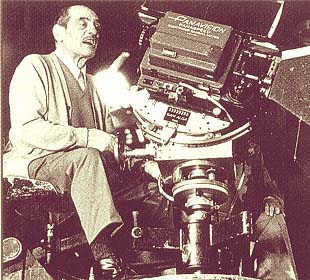Mar
4
Touch of Evil
Posted by: Brian | March 4, 2009 | Comments Off on Touch of Evil
I think that commenting on the cinematography and how it affected my perception of the film would be far above my head. I think that my thematic response to the film, though, was aided by the angles and movements of the camera.
But, he final scene in which the American police officer is shot, because of the camera angles, was abble to resonate a kind of salvation. If I remember correctly, the camera is looking down on him, and the good, or better, American cop is looking down on him and shoots him. There’s a kind of heaven like quality to that kind of frame I think, which is enforced by the disgusting and devilish form of the dead man’s corpse. The corpse even washes down amongst the garbage and the audience doesnt feel very shocked at such dehumanization, it’s almost expected that this character ends this way.
In this ending to the movie, one of the main goals of the film becomes clear to me. One of these goals is to show Mexican identity as not inferior to that of the USA. I do not know enough about films at this time to say with sureity that this is not a common occurence, but I believe it would be. Throughout the film, we see the struggle of Vargas against the American cops, but our sympathies lie somewhat undecided until the very end. It is here that the fall of the American cop is evident both in his actions and even in his body. Vargas’ triumph to me is a new representation of North American equality in a way, which shows that it is not each person’s nationality but their character which places them in moral hierarchy above one another. I think this film is one which most clearly depicts individual characters above generalized views. If we think of the American girls in Mecanica Nacional, and then in this film, we see the former as being very boxed in and straight forward, but this film shows them separate and very dynamic in their character development.
Therefore, it is not out of ill representation of American identity in the film, for they are developed jsut as much as Vargas, but it is the carrying out of the plot which enables Vargas’ triumph. This then makes the film a kind of social response, and anthropological representation of Mexican identity within a detective like film. Why the directer did this I cannot say, but I can say that it was effective in changing my perception of Mexican films and films of Mexico.
